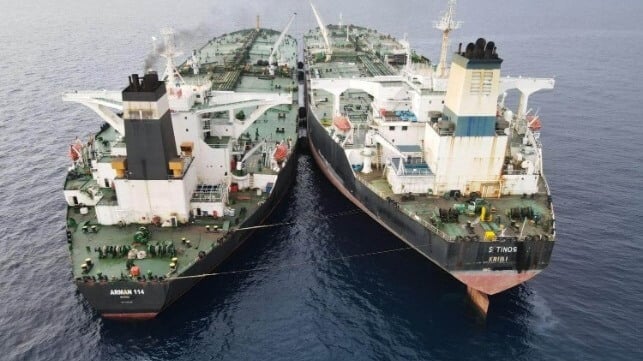Panama Registry Cracks Down on STS Actions to Stop Shadow Fleet

The Panama Maritime Authority (PMA) is taking further actions to crack down on suspicious tankers by establishing new rules for ship-to-ship oil transfers for vessels in its registry. It is the latest in a series of steps responding to international pressure to stop the notorious technique used by vessels trying to hide transactions of Russian and Iranian oil.
“This new regulation reinforces Panama’s role as a flag state committed to maritime safety, operational transparency, and the prevention of fraudulent use of its registry, in full alignment with IMO regulations and the MARPOL Convention,” explained DGMM Acting Director, Engineer Rina Berrocal. “This is not just about safeguarding the reputation of the Panamanian registry,” she warned, “but about ensuring that our vessels are not used as platforms for illicit activities that undermine global trade and harm the environment.”
Under a resolution published this month, the PMA introduced rules it says are designed to create stricter controls and mandatory traceability for offshore STS transfers of hydrocarbons. Effective immediately, all Panama-flagged vessels with a gross tonnage of 150 or more must notify the flag state at least 48 hours in advance of any planned STS operation, providing detailed technical, logistical, and operational information.
“This initiative addresses the growing use of opaque vessels to circumvent international sanctions, transport undeclared crude, or evade environmental safety regulations—practices commonly associated with what is known as the shadow or dark fleet,” said Berrocal.

that matters most
Get the latest maritime news delivered to your inbox daily.
Ships are required to provide details on the other ship involved in the transfer including its IMO number and flag. They must also declare where and how the transfer will be performed and confirm that it has a plan in accordance with the MARPOL convention.
Last year, the PMA took steps to clean its registry and make the process of removing violators simpler. As the largest registry by the number of ships, Panama also had the greatest number of ships identified by watchdog groups as involved in the oil trade for Iran and Russia. Registry officials said they were making an effort to purge their ranks of suspect vessels and also have worked with other leading registries to identify vessels attempting to flag hop to avoid detection.
